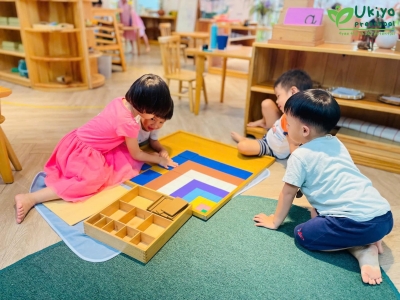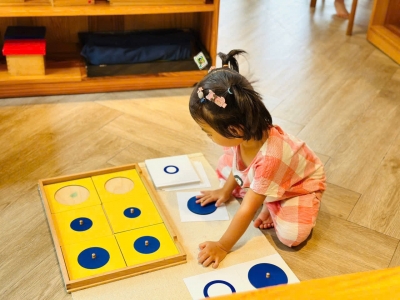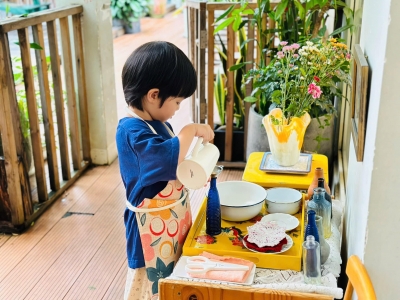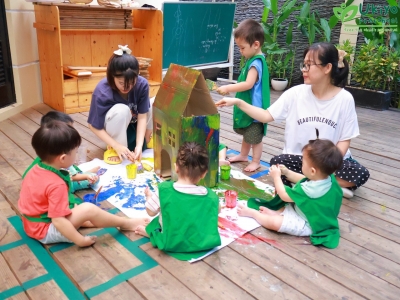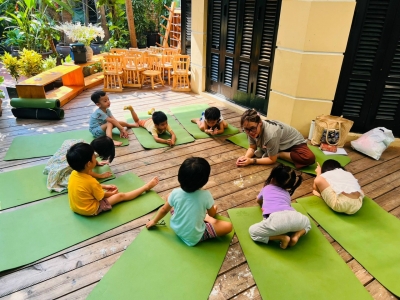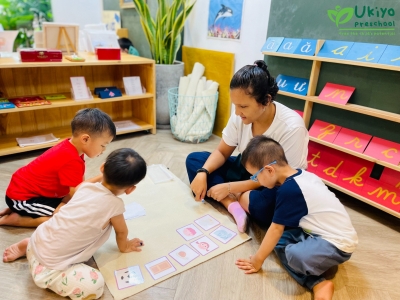THE IMPORTANCE OF PRACTICING ART DURING THE EARLY CHILDHOOD IN MONTESSORI APPROACH
In Montessori education, the importance of practicing art during early childhood is highly valued. Art is a means of self-expression, communication, and creativity that can help children develop their senses and cognitive abilities. Through art, children can express themselves and their emotions, experiment with different materials and techniques, and develop their fine motor skills. Here are some key reasons why art is considered an essential part of early childhood education in the Montessori approach:
- Promotes Creativity: Art allows children to express their creativity and imagination. They can create their own world and use their imagination to turn ordinary materials into something extraordinary. Through art, children can learn to see the world in a different way, think outside the box and explore new possibilities.
- Develops Fine Motor Skills: Creating art requires fine motor skills, such as grasping and manipulating small objects, cutting, and drawing. These skills are essential for later development, including writing, using tools, and performing other everyday tasks. Through art, children can develop and refine their fine motor skills in a fun and engaging way.
- Enhances Cognitive Development: Art activities help children develop their cognitive skills, such as problem-solving, critical thinking, and decision-making. They learn to make choices about materials, colors, and shapes, and experiment with different techniques. Through art, children can learn to analyze and interpret visual information and develop their spatial awareness.
- Improves Communication: Art can be a powerful tool for communication. Children can use art to express their thoughts, emotions, and experiences. Through art, children can learn to communicate effectively, and they can also learn to interpret and understand the messages that others convey through art.
In conclusion, practicing art during early childhood is an important aspect of the Montessori approach. Art activities provide children with opportunities to develop their creativity, fine motor skills, cognitive abilities, communication skills, and emotional development. Art is an essential part of a well-rounded education that encourages children to explore their potential and develop a lifelong love of learning.
Others



